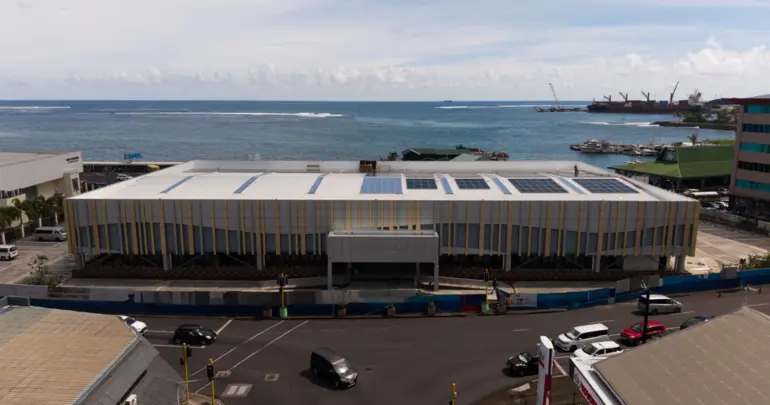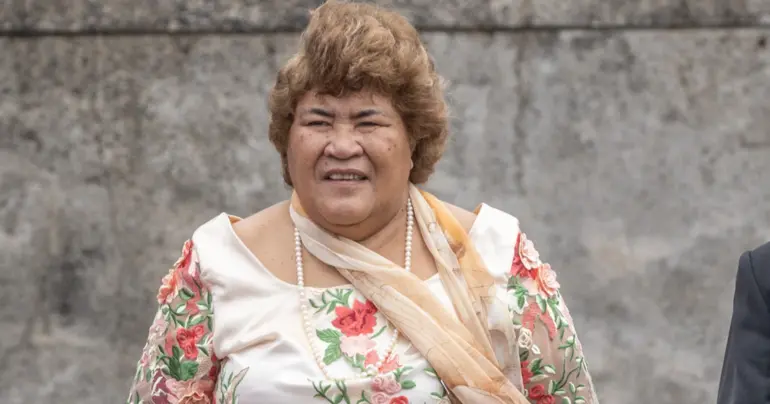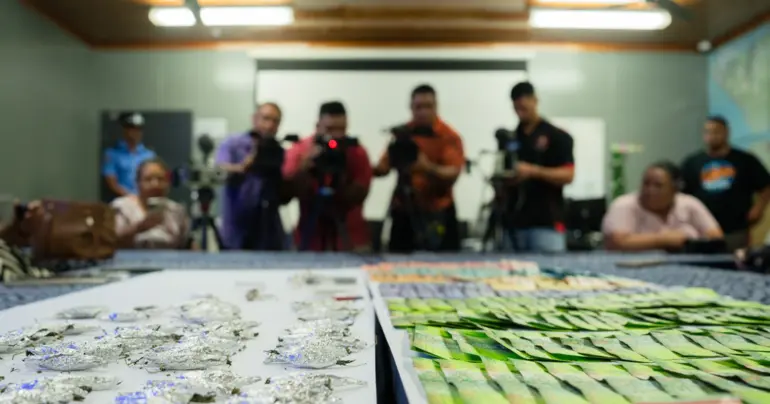Experts call for “Komiti Tumama” role to tackle non-communicable disease crisis
A report in an international medical journal has highlighted the role of women’s groups (Komiti Tumama) in Samoa and called for their involvement to address the country’s growing non-communicable disease crisis.
The article titled Achieving UHC in Samoa through Revitalizing PHC and Reinvigorating the Role of Village Women Groups was published in the Health Systems & Reform Journal (Taylor & Francis Online) this year and is authored by Rasul Baghirov (WHO Samoa country office head), John Ah-Ching (Associate Minister, Samoa Ministry of Health) and Caroline Bollars (Department of Health Promotion, Faculty of Health, Medicine and Life Sciences, Maastricht University, Maastricht, The Netherlands).
According to the report, Samoa’s 200,000 population is challenged by a limited health workforce, and uneven distribution of medical personnel — with a high doctor concentration at the Tupua Tamasese Meaole (TTM) National Hospital in Upolu and the Malietoa Tanumafili II (MT2) Referral hospital in Savai’i. In 2013, there were four doctors and 16 nurses for every 10,000 of the population in Samoa, added the report.
“This hospital-centric model of care does not address the growing problem of chronic non-communicable diseases (NCDs),” stated the report.
“NCD risk factors, such as tobacco use, harmful use of alcohol, unhealthy diets high in sugar, fat and salt, and a sedentary way of living, contribute to an increasing NCD burden in Samoa. These lifestyle habits lead to high blood pressure, diabetes and eventually heart disease, stroke and kidney failure. When one person is suffering from an NCD, the entire family suffers too. When one family is suffering, the entire village is affected.”
The report said the Samoa Government is undertaking reforms to “strengthen community-based care and rebuild” primary health care. These includes bringing back women’s village committees to identify and refer people facing high risks.
Working with the World Health Organisation (WHO), they created the WHO Package of Essential Noncommunicable Disease Interventions (PEN) for primary care in low-resource settings, which was set up as an innovative and action-oriented response to address the NCD challenges.
“In Samoa, women’s groups (Komiti Tumama) have historically played a vital role in the delivery of public health and improving access to health services.
“Created under the New Zealand administration (1921–1962), Komiti remain in operation until the present day, though their role and influence as agents of public health have diminished,” stated the report.
However, in light of the challenges posed by the growing NCD crisis, the Ministry of Health and the WHO — under the auspices of the PEN therein PEN Fa’a Samoa — decided to utilise the Komiti in 2015 to lead health awareness in villages.
The awareness incorporated values from the Healthy Islands initiative to deliver a public health intervention on NCDs comprising of individual, peer, family and community mobilisation components. Two villages were selected for the demonstrations, which started in 2015 and by 2018 had covered 15 villages on both Upolu and Savai’i.
“Preliminary results of the program implementation are positive. PEN Fa’a Samoa achieved a high level of population screening coverage in the demonstration villages, in which the women’s committee representatives played a key role. In this regard, PEN Fa’a Samoa utilizes the concept that the women in villages themselves take care of NCD risk factors for their own communities.
“Following nomination, women’s committee representatives demonstrated considerable enthusiasm in informing and requesting village members to attend fixed sites for screening, which has resulted in remarkable screening coverage.
“As the role of the women’s committee representatives has been confirmed as the main feature of PEN Fa’a Samoa and revisited through feedback sessions and focus group interviews, a more detailed terms of reference for the women’s committee representatives are being developed for the expansion of PEN Fa’a Samoa throughout the country,” the report stated.
According to the report, the implementation of PEN Fa’a Samoa is critical to the Government’s push for universal health care and the role of Komiti Tumama is critical for success.
“The Komiti Tumama’s role, in the transformation of the health system in Samoa and in addressing the key challenge of the present time, is as vital now in the NCD crisis—as it was in addressing the challenges of infectious diseases in the past.”











